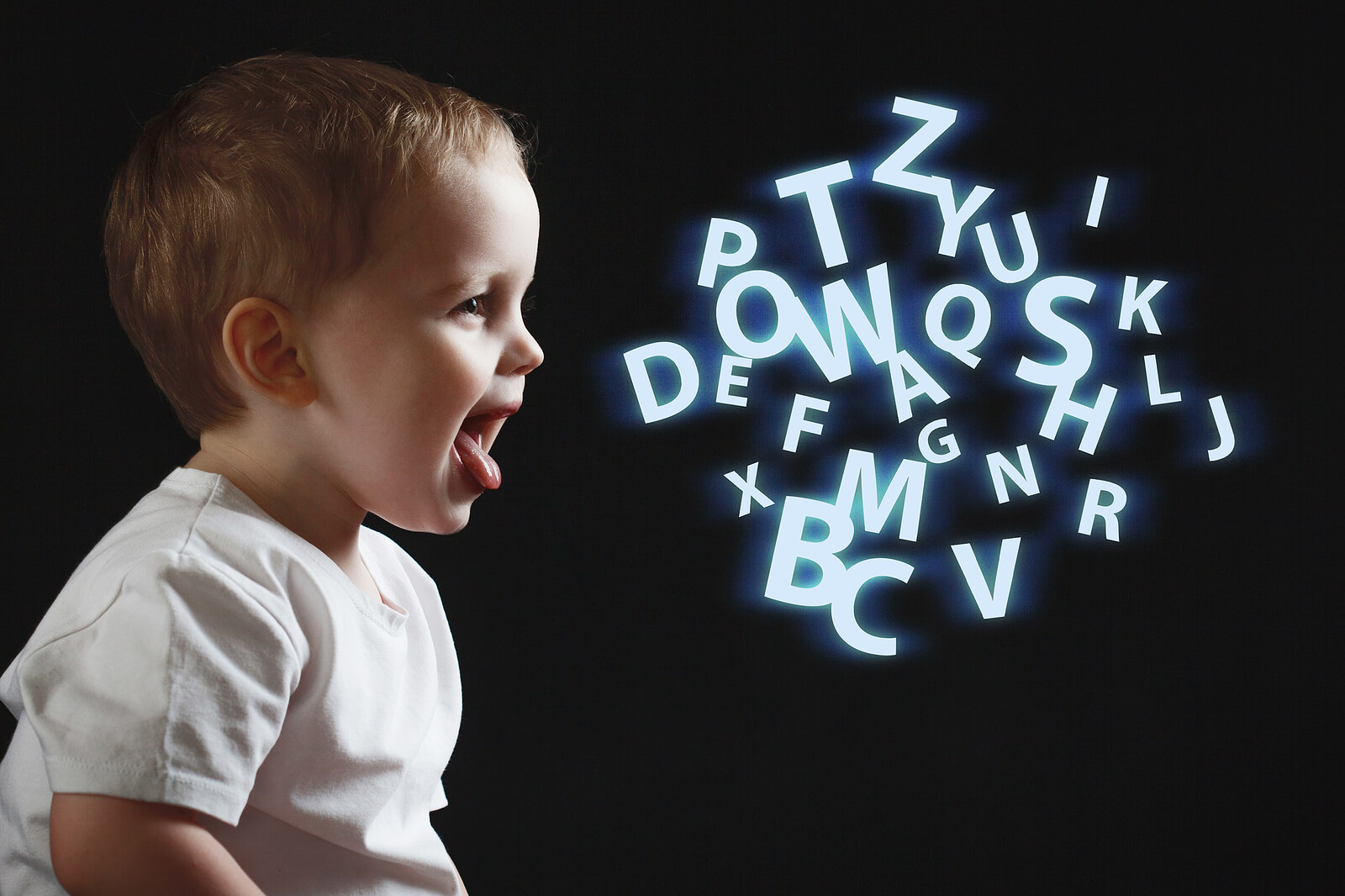Einstein Syndrome: Characteristics and Causes


Written and verified by the psychologist Elena Sanz Martín
From the moment a child is born, their parents are aware of every little advance and achievement. Their first movements, smiles, looks, or words are a family event. However, when these developmental milestones take longer than expected to appear, concerns arise. In this context, you should know that there’s a condition that describes the situation of those infants who present a delay in speech development but who are brilliant in other aspects. This is known as Einstein’s syndrome, in allusion to the life story of the flamboyant scientist of the twentieth century.
We’ll tell you what it is so you can be attentive to your little ones. Keep reading to find out everything you need to know!
What is Einstein syndrome?

Einstein syndrome was defined by the American economist Thomas Sowell, with the aim of differentiating children who present some developmental delays from those who simply speak later than their peers.
Sowell worked together with Dr. Stephen Camarata to investigate this phenomenon in depth, until describing a complete syndrome with particular characteristics shared by many infants. Therefore, Einstein syndrome gets its name from the famous 20th century scientist, who, despite his undeniable genius, didn’t pronounce complete sentences until he was five years old.
This is something that happens to a huge number of children and often, some parents begin to suspect the possibility that their child has autism or an intellectual disability. However, this doesn’t necessarily have to be the case.
In general, toddlers pronounce their first words around their first birthday, and by their second birthday, they’re able to combine them into simple sentences and communicate very well. By the third and fourth years of life, their vocabulary expands enormously and their grammatical constructions are enriched.
However, this process doesn’t occur in the same way or at the same rate in all children. In fact, it’s estimated that about 15% of infants acquire language later on. And, among the multiple causes and conditions that can account for this delay is the syndrome that we’re talking about today.
The main characteristics of Einstein syndrome
Beyond language, this syndrome includes other characteristics that allow us to identify these children and distinguish them from those with various developmental conditions.
These are its main signs:
- Delayed speech onset. The infant may not have begun to speak even after the age of four.
- Outstanding or above-average abilities in musical or analytical tasks, as well as in the use of technology. Likewise, there may be close relatives who excel in these same areas.
- Excellent memory.
- Good motor skills.
- Selective or restricted interests and great creativity. The child may be absorbed in certain activities and focus their attention in an intense and inappropriate way for their age.
- A certain stubbornness and determination, which makes it difficult to convince them to do what they don’t want to do or to change their mind.
- Although speech takes time to acquire, it eventually develops normally and doesn’t present any difficulties or deficiencies.

The importance of differential diagnosis
It’s important to mention that Einstein syndrome isn’t listed as a disorder in any of the major psychiatry or psychology manuals. For the same reason, research on the subject is insufficient and its causes are still unknown (although a certain pattern is usually observed at the family level). However, it’s very useful to consider it when making a differential diagnosis. As mentioned above, delayed speech acquisition often leads us to think of intellectual disability, autism, or some other more complex psychological conditions.
Therefore, many children are misdiagnosed and receive interventions and supports that aren’t necessary or appropriate for them.
It’s true that there are certain symptoms common to other developmental conditions, such as speech delay or restricted interests. But children with Einstein syndrome don’t have any cognitive difficulties and, in fact, many of them are bright and excel in different areas of neurodevelopment. They even eventually achieve normal language development and catch up with their peers.
For all these reasons, it’s important to be aware of the existence of Einstein syndrome before labeling an infant. Therefore, if you perceive that your child isn’t acquiring speech at the “expected” rate, pay attention to the context before becoming alarmed. Try to identify if there are other signs of suspicion of this condition. But, above all, don’t hesitate to consult a qualified professional who can arrive at a good diagnosis and provide you with useful guidelines to follow.
From the moment a child is born, their parents are aware of every little advance and achievement. Their first movements, smiles, looks, or words are a family event. However, when these developmental milestones take longer than expected to appear, concerns arise. In this context, you should know that there’s a condition that describes the situation of those infants who present a delay in speech development but who are brilliant in other aspects. This is known as Einstein’s syndrome, in allusion to the life story of the flamboyant scientist of the twentieth century.
We’ll tell you what it is so you can be attentive to your little ones. Keep reading to find out everything you need to know!
What is Einstein syndrome?

Einstein syndrome was defined by the American economist Thomas Sowell, with the aim of differentiating children who present some developmental delays from those who simply speak later than their peers.
Sowell worked together with Dr. Stephen Camarata to investigate this phenomenon in depth, until describing a complete syndrome with particular characteristics shared by many infants. Therefore, Einstein syndrome gets its name from the famous 20th century scientist, who, despite his undeniable genius, didn’t pronounce complete sentences until he was five years old.
This is something that happens to a huge number of children and often, some parents begin to suspect the possibility that their child has autism or an intellectual disability. However, this doesn’t necessarily have to be the case.
In general, toddlers pronounce their first words around their first birthday, and by their second birthday, they’re able to combine them into simple sentences and communicate very well. By the third and fourth years of life, their vocabulary expands enormously and their grammatical constructions are enriched.
However, this process doesn’t occur in the same way or at the same rate in all children. In fact, it’s estimated that about 15% of infants acquire language later on. And, among the multiple causes and conditions that can account for this delay is the syndrome that we’re talking about today.
The main characteristics of Einstein syndrome
Beyond language, this syndrome includes other characteristics that allow us to identify these children and distinguish them from those with various developmental conditions.
These are its main signs:
- Delayed speech onset. The infant may not have begun to speak even after the age of four.
- Outstanding or above-average abilities in musical or analytical tasks, as well as in the use of technology. Likewise, there may be close relatives who excel in these same areas.
- Excellent memory.
- Good motor skills.
- Selective or restricted interests and great creativity. The child may be absorbed in certain activities and focus their attention in an intense and inappropriate way for their age.
- A certain stubbornness and determination, which makes it difficult to convince them to do what they don’t want to do or to change their mind.
- Although speech takes time to acquire, it eventually develops normally and doesn’t present any difficulties or deficiencies.

The importance of differential diagnosis
It’s important to mention that Einstein syndrome isn’t listed as a disorder in any of the major psychiatry or psychology manuals. For the same reason, research on the subject is insufficient and its causes are still unknown (although a certain pattern is usually observed at the family level). However, it’s very useful to consider it when making a differential diagnosis. As mentioned above, delayed speech acquisition often leads us to think of intellectual disability, autism, or some other more complex psychological conditions.
Therefore, many children are misdiagnosed and receive interventions and supports that aren’t necessary or appropriate for them.
It’s true that there are certain symptoms common to other developmental conditions, such as speech delay or restricted interests. But children with Einstein syndrome don’t have any cognitive difficulties and, in fact, many of them are bright and excel in different areas of neurodevelopment. They even eventually achieve normal language development and catch up with their peers.
For all these reasons, it’s important to be aware of the existence of Einstein syndrome before labeling an infant. Therefore, if you perceive that your child isn’t acquiring speech at the “expected” rate, pay attention to the context before becoming alarmed. Try to identify if there are other signs of suspicion of this condition. But, above all, don’t hesitate to consult a qualified professional who can arrive at a good diagnosis and provide you with useful guidelines to follow.
All cited sources were thoroughly reviewed by our team to ensure their quality, reliability, currency, and validity. The bibliography of this article was considered reliable and of academic or scientific accuracy.
- Rapin, I. (2002). Book Review: Diagnostic Dilemmas in Developmental Disabilities: Fuzzy Margins at the Edges of Normality. An Essay Prompted by Thomas Sowell’s New Book: The Einstein Syndrome. Journal of Autism and Developmental Disorders, 32(1), 49-57.
- Sowell, T. (2021). The Einstein syndrome: Bright children who talk late. Hachette UK.
This text is provided for informational purposes only and does not replace consultation with a professional. If in doubt, consult your specialist.








